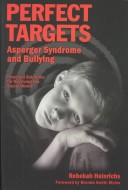Dear Mr. Preller,My son bought your Along Came Spider book at the school bookfair. At first I thought he chose it for the cover art, but he assured me he had read the back and the story sounded appealing. As a habit I try to read the books my children select. My son is just nearly on the autism spectrum -- so again, as a habit I try to read books my children are interested in when I am unfamiliar with the story. First, I read it in one sitting and it nearly made me weep . . . as a parent of a "Trey" and as a parent volunteer in our elementary school. I felt the story was just so well thought out and really hit the areas that a lot of 9-11 year old boys have trouble with. (Forgive me only having boys I'm not sure how parents with daughters would feel.) I have recommended your book to our school principal and will be talking to the school social worker about the possibility of using it for a directed reading 'book club' for small group instruction and Social Development curriculum.Do you have discussion points available for your books if they were to be used as a book club book? Perhaps, one that you have already completed you could maybe email? I would like to lend our copy to the school social worker with some suggested book club discussion points. Our school also has an active social development committee and with all that goes on in the world of kids to navigate through books like Along Came Spider might be a helpful way to engage them in some dialogue both with their peers and their own feelings through self-dialogue as part of this curriculum.I look forward to reading more of your materials.Thanks again so much for taking the time to get back to me.Lianne
Lianne,
Thanks for your note. Your approval really means a lot, coming from someone with your personal experience.
Spider was named 100 Best Books for Reading and Sharing by the New York Public Library Association in 2008. I wrote a follow-up book, Justin Fisher Declares War!, that can be considered a very loose sequel. It takes place in the same school, Spiro Agnew Elementary, and some characters recur in minor roles (Trey, Spider, Ms. Lobel), though the emphasis is on several new characters in a different fifth-grade classroom. In addition, my book Bystander, set in a middle school environment, also focuses on similar issues of exclusion, bullying, and tolerance.
I am impressed by your commitment to social development in the school. Obviously, it’s essential to build a community of learners, with tolerance and respect as cornerstones to every classroom. I’ve heard from teachers who have used Spider as a read-aloud, for the reasons you pointed out: it can serve as a good conversation-starter.
It’s interesting that you asked about discussion points. Nothing like that has been formalized. However, I recently set up a Skype account and I’m interested in exploring those possibilities. If you’d be willing to work with a complete novice, we could arrange for a free 15-minute question-and-answer chat where we can talk about the talk. Obviously, we’d need to work out some details. Author Skyping has become all the rage lately, and I’ve been looking for a way that works for me. Generally, authors charge a fee ($100-$200), request that books are offered for sale, and that the gathered group is prepared with thoughtful questions.
What do you think?
You would be my guinnea pig!
JP
An early, rejected version of the cover,
which I still much prefer.
POSTSCRIPT: Lianne, and other curious readers, might be interested in this book, by Kathryn Erskine. Though Aspergers is much more likely to occur in boys, this book looks at it from a girl’s point of view. I own it, but haven’t tackled it yet. It’s on the stack, or the pile, or the list, and I’m sure that all readers can relate.






